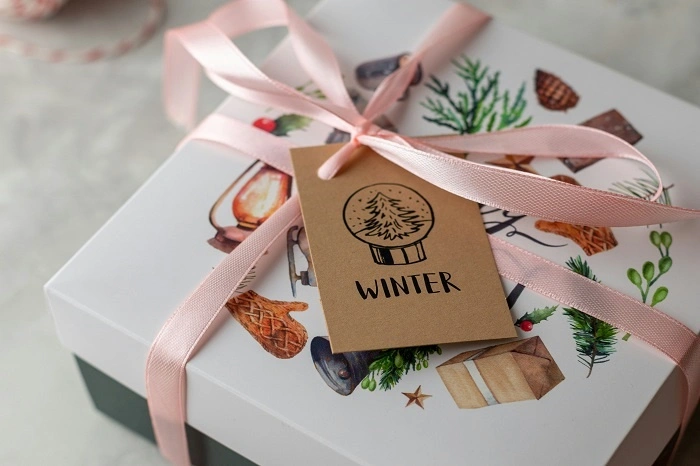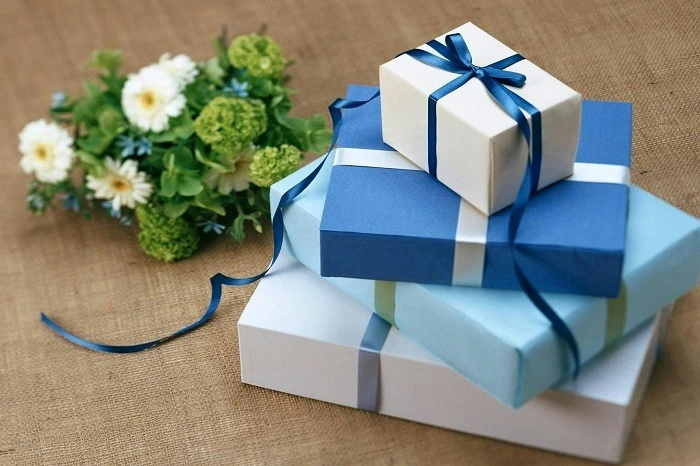For a true marksman, hunting is more than just a hobby. It's a way of life. In actuality, many gift ideas for hunters dedicate their entire lives to developing their craft and abilities. And with one of the most excellent hunting presents, you can help them on their hunt. This is a carefully picked selection of discoveries that will make the hunter in your heart hunger over.
There are products for all kinds of hunters, including casual participants. Are you searching for a unique way to express your concern to them as a stocking stuffer? Numerous choices are adjustable, such as the written compass.
Because it's small enough to fit in your bag and will satisfy the deer hunter for the entire day, our One of Everything Jerky Box is ideal for a present. And did I also mention that it tastes so good? Here are the best gifts for deer hunters; keep reading.
The Total Deer Hunting Manual
The Whole Deer Hunting Manual is an extensive manual created to give beginners and experts Christmas gifts for hunters with the information and abilities they need to have a successful deer hunting trip. This booklet covers every aspect of deer hunting, from learning how to hunt and ensuring ethical procedures to understanding deer behavior and habitat.
This guide offers accurate and helpful guidance for all levels of hunters, from experienced ones hoping to improve their techniques to beginners ready to start their hunting adventure. The Complete Deer Hunting Manual is your go-to resource for comprehensive advice on everything from equipment selection to scouting methods, shot placement, and game care. It will make your hunting experience exciting and fulfilling.
- Master the art of deer tracking: Learn to read tracks, signs, and behavior to predict deer movements.
- Scout effectively: Discover prime hunting spots, food sources, and bedding areas using advanced scouting techniques.
- Choose the right equipment: Select the best firearms, ammunition, and accessories for your hunting style and local regulations.
- Practice ethical hunting: Understand and follow hunting laws, safety protocols, and ethical hunting practices.
- Develop your shooting skills: Improve your accuracy and precision through targeted shooting drills and practice.
- Understand deer biology: Learn about deer behavior, mating patterns, and habitat preferences to increase your success.
- Master camouflage and concealment: Blend into your surroundings to avoid detection and increase your chances of a successful hunt.
- Utilize hunting tactics: Explore various hunting techniques like stand hunting, bow hunting, and muzzle loading.
- Prepare for any weather: Be ready for unexpected weather conditions with appropriate gear and survival skills.
- Harvest responsibly: Learn proper field dressing and handling of harvested deer to ensure quality meat.
- Analyze your hunts: Review your hunting experiences to identify areas for improvement and learn from your mistakes.
- Stay informed about hunting regulations: Keep up-to-date on hunting laws and regulations in your area.
- Connect with other hunters: Network with experienced hunters to share knowledge and learn new techniques.
- Respect wildlife and habitat: Preserve the natural environment and protect wildlife populations.
- Practice patience and persistence: Hunting requires patience and perseverance. Stay focused and maintain a positive attitude.
- Enhance your physical fitness: Improve your stamina and endurance for long hunting days.
- Learn first aid and survival skills: Be prepared for emergencies with basic first aid and survival knowledge.
- Consider hunting education courses: Enroll in hunting education programs to gain valuable knowledge and skills.
- Respect landowners and property rights: Obtain necessary permits and permissions before hunting on private land.
- Enjoy the hunting experience: Embrace the outdoors, appreciate nature, and savor the thrill of the hunt.
Deer Hunting Processing Kit
A deer hunting processing kit is necessary equipment for hunters who wish to properly and effectively prepare their harvested deer. The specialized equipment and supplies included in these kits typically make the process of field dressing, butchering, and storing deer easier.
- Gather your tools: Ensure you have all the necessary tools, including a sharp knife, saw, game bags, gloves, thermometer, cleaning supplies, and a sharpening stone.
- Clean and sanitize your work area: A clean work area is essential for preventing contamination and ensuring food safety.
- Field dress the deer: Begin by field dressing the deer, removing the heart, lungs, liver, and other organs.
- Skin the deer: Carefully skin the deer, starting at the neck and working your way down the body.
- Quarter the deer: Divide the deer into four quarters for easier handling and processing.
- Remove the back straps: The back straps are the most tender and flavorful cuts of meat. Carefully remove them from the carcass.
- Bone out the remaining meat: Remove the bones from the remaining cuts of meat, such as the ribs, loins, and shoulder.
- Trim excess fat and connective tissue: Trim away any excess fat and connective tissue to improve the quality of the meat.
- Package and label the meat: Package the meat in individual bags and label them with the cut and date of processing.
- Refrigerate or freeze the meat: Store the meat in the refrigerator or freezer to preserve its freshness.
- Clean and disinfect your tools and equipment: Thoroughly clean and disinfect all your tools and equipment after processing to prevent contamination.
- Dispose of any waste materials responsibly: Dispose of any waste materials, such as organs and intestines, in accordance with local regulations.
- Enjoy your venison! Prepare and cook your venison in a variety of delicious ways.
- Learn from your experience: Reflect on your processing experience and identify areas for improvement.
- Share your knowledge with others: Pass on your knowledge and skills to other hunters who may need assistance.
- Maintain your equipment: Regularly inspect and maintain your processing tools to ensure they are in good working condition.
- Invest in a high-quality processing kit: A well-equipped processing kit can make the task much easier and more efficient.
- Practice and refine your processing skills: The more you practice, the better you will become at processing deer.
- Respect the animal: Treat the deer with respect throughout the entire process.
- Appreciate the harvest: Take pride in your ability to provide food for yourself and your family.
Deer Attraction Spray
A specialty product called a deer attraction spray draws deer to a particular area. Top gifts for hunters frequently use these sprays to improve their odds of seeing deer in a targeted location. Usually, they combine natural perfumes and attractants that simulate the natural scents deer find attractive, such as food, estrous females, or bucks in a rut.
It's crucial to remember that using deer attraction sprays will only sometimes draw in deer. Their efficacy can be affected by variables like the season, local weather, and the total number of deer in the area. However, deer attraction sprays can be an effective tool and good gifts for hunters looking to improve their chances of success if utilized correctly and in concert with other hunting strategies.
- Choose the right scent: Select a deer attractant spray that mimics the natural scents deer find appealing, such as food, estrous females, or bucks in rut.
- Apply strategically: Spray the attractant in areas where deer are known to travel, such as food plots, hunting stands, or along deer trails.
- Consider wind direction: Apply the spray upwind of your hunting location to ensure the scent carries towards the deer.
- Time your application: Use the attractant at the right time of day, such as early morning or late afternoon when deer are most active.
- Combine with other hunting tactics: Use deer attractant spray in conjunction with other hunting techniques, such as scouting, stand placement, and scent control.
- Be patient: It may take time for deer to respond to the attractant. Be patient and allow the scent to work its magic.
- Rotate attractant scents: Using different scents can help prevent deer from becoming accustomed to a particular odor.
- Avoid over-application: Applying too much attractant can be counterproductive. Use it sparingly.
- Consider the time of year: The effectiveness of deer attractant sprays can vary depending on the season and the stage of the deer's breeding cycle.
- Respect wildlife and habitat: Use deer attractant sprays responsibly and avoid disturbing wildlife or damaging their habitat.
- Experiment with different brands and scents: Try different brands and scents to find what works best for your local deer population.
- Be mindful of weather conditions: Wind, rain, and other weather factors can affect the effectiveness of deer attractant sprays.
- Combine with food plots: Planting food plots can attract deer to the area, making the use of attractant sprays even more effective.
- Use a scent dispenser: Consider using a scent dispenser to release the attractant gradually over time.
- Avoid applying attractant directly to your hunting gear: Applying the attractant to your hunting gear can leave a human scent that may deter deer.
- Be aware of local regulations: Check local hunting regulations to ensure that the use of deer attractant sprays is permitted in your area.
- Consider the impact on other wildlife: Deer attractant sprays may also attract other wildlife, such as bears or raccoons.
- Store attractant sprays properly: Store attractant sprays in a cool, dry place away from direct sunlight.
- Use attractant sprays as a supplement, not a substitute: Deer attractant sprays should be used as a supplement to other hunting techniques, not as a guaranteed solution.
- Enjoy the hunting experience: Whether or not you use deer attractant sprays, remember to appreciate the thrill of the hunt and the beauty of the outdoors.
Deer Call
A deer call is a hunting aid that replicates the sounds of a deer, including bleats, grunts, and distress calls. Hunting success can be increased by utilizing a deer call to draw the animal to the best gift for the hunter's location. Many different types and materials of deer calls are available, such as mouth-blown, diaphragm, and electronic sounds. Every call type has unique benefits and sounds of its own.
The hunter must breathe into the mouth-blown call for it to make noise. The top gifts for duck hunters use their tongue and diaphragm movements to make sounds with these in-mouth diaphragm calls. Electronic calls produce pre-recorded deer sounds using batteries or other power sources.
- Choose the right call: Select a deer call that suits your hunting style and the specific sounds you want to produce.
- Practice using the call: Become proficient in using the call to create realistic deer sounds.
- Understand deer vocalizations: Learn the different sounds that deer make, such as grunts, bleats, and distress calls.
- Time your calls: Use the call at the right time of day, such as early morning or late afternoon when deer are most active.
- Consider the season: The effectiveness of deer calls can vary depending on the season and the stage of the deer's breeding cycle.
- Use calls sparingly: Excessive use of deer calls can disturb wildlife and reduce their effectiveness.
- Combine with other hunting tactics: Use deer calls in conjunction with other hunting techniques, such as scouting, stand placement, and scent control.
- Be patient: It may take time for deer to respond to your calls. Be patient and allow the sounds to attract them.
- Experiment with different calls: Try different types of calls to find what works best for your local deer population.
- Respect wildlife and habitat: Use deer calls responsibly and avoid disturbing wildlife or damaging their habitat.
- Be aware of local regulations: Check local hunting regulations to ensure that the use of deer calls is permitted in your area.
- Consider the impact on other wildlife: Deer calls may attract other wildlife, such as bears or raccoons.
- Store deer calls properly: Store your deer calls in a cool, dry place away from direct sunlight.
- Use deer calls as a supplement, not a substitute: Deer calls should be used as a supplement to other hunting techniques, not as a guaranteed solution.
- Enjoy the hunting experience: Whether or not you use deer calls, remember to appreciate the thrill of the hunt and the beauty of the outdoors.
- Practice ethical hunting: Follow all hunting regulations and guidelines to ensure a safe and responsible hunting experience.
- Learn from your experiences: Reflect on your hunting experiences and identify areas for improvement.
- Share your knowledge with others: Pass on your knowledge and skills to other hunters who may need assistance.
- Support conservation efforts: Contribute to conservation organizations that work to protect deer populations and their habitats.
- Continue to learn and improve: Stay informed about the latest hunting techniques and technologies.
Conclusion
Think about the deer hunter's needs, tastes, and hunting style when selecting a present. Many kind and useful gifts can improve the hunter's experience, regardless of the recipient's expertise level. Anything to fit any deer hunter's taste is available, ranging from hunting gear and clothing to educational materials and unique hunting-themed products. You may help them and add even more enjoyment to their hunting excursions by thoughtfully choosing a present that expresses your understanding and respect for their energy.
Frequently asked questions:
Q. What should I get as a gift for a hunter?
On the other hand, go for something more practical, like a cookbook that will make them a better home cook right away, a first aid kit, a set of attractive yet sturdy field boots with thermal socks, or a lovely new pair of monoculars.
Q. What equipment do most hunters use to hunt deer?
The bolt-action rifle is undoubtedly the most popular option among good gifts for deer hunters.
Q. What is most needed by hunters?
Anytime you're outside, you must have your hunting gear with you. Scent control, game bags, and quality hunting knives are a few examples of these items.



